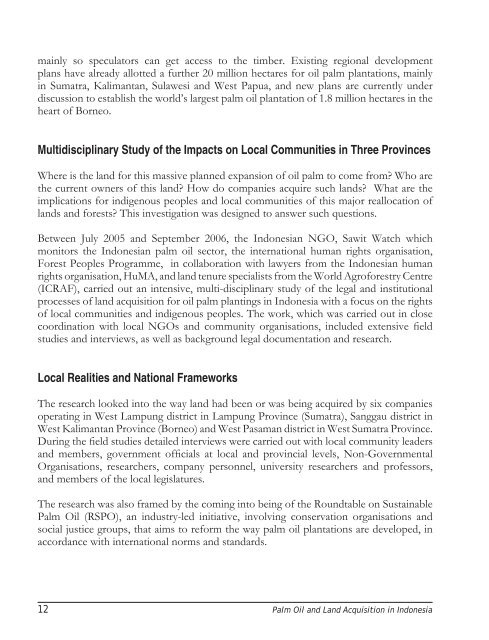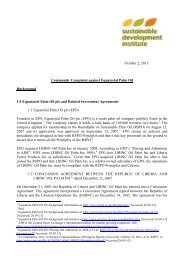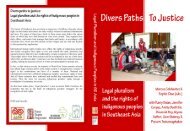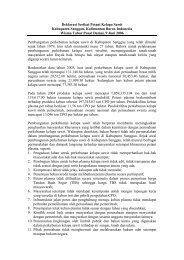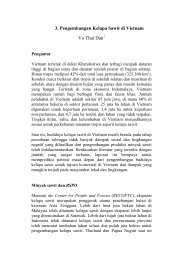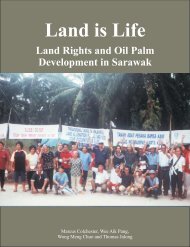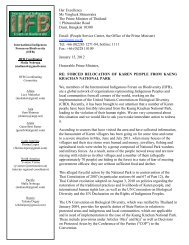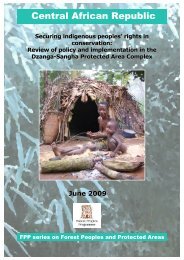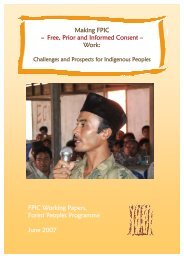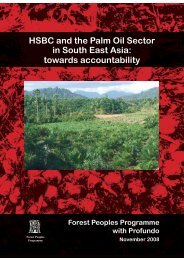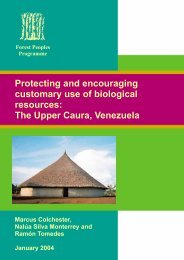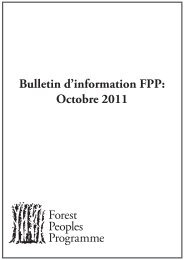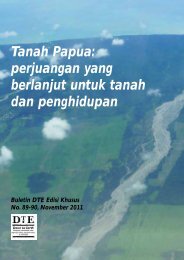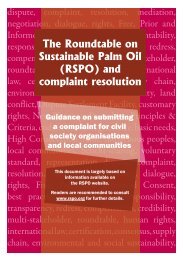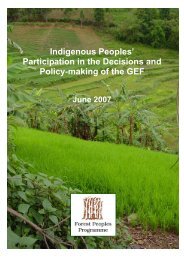Final Land Acquisition Book English.indd - Forest Peoples Programme
Final Land Acquisition Book English.indd - Forest Peoples Programme
Final Land Acquisition Book English.indd - Forest Peoples Programme
Create successful ePaper yourself
Turn your PDF publications into a flip-book with our unique Google optimized e-Paper software.
mainly so speculators can get access to the timber. Existing regional development<br />
plans have already allotted a further 20 million hectares for oil palm plantations, mainly<br />
in Sumatra, Kalimantan, Sulawesi and West Papua, and new plans are currently under<br />
discussion to establish the world’s largest palm oil plantation of 1.8 million hectares in the<br />
heart of Borneo.<br />
Multidisciplinary Study of the Impacts on Local Communities in Three Provinces<br />
Where is the land for this massive planned expansion of oil palm to come from? Who are<br />
the current owners of this land? How do companies acquire such lands? What are the<br />
implications for indigenous peoples and local communities of this major reallocation of<br />
lands and forests? This investigation was designed to answer such questions.<br />
Between July 2005 and September 2006, the Indonesian NGO, Sawit Watch which<br />
monitors the Indonesian palm oil sector, the international human rights organisation,<br />
<strong>Forest</strong> <strong>Peoples</strong> <strong>Programme</strong>, in collaboration with lawyers from the Indonesian human<br />
rights organisation, HuMA, and land tenure specialists from the World Agroforestry Centre<br />
(ICRAF), carried out an intensive, multi-disciplinary study of the legal and institutional<br />
processes of land acquisition for oil palm plantings in Indonesia with a focus on the rights<br />
of local communities and indigenous peoples. The work, which was carried out in close<br />
coordination with local NGOs and community organisations, included extensive field<br />
studies and interviews, as well as background legal documentation and research.<br />
Local Realities and National Frameworks<br />
The research looked into the way land had been or was being acquired by six companies<br />
operating in West Lampung district in Lampung Province (Sumatra), Sanggau district in<br />
West Kalimantan Province (Borneo) and West Pasaman district in West Sumatra Province.<br />
During the field studies detailed interviews were carried out with local community leaders<br />
and members, government officials at local and provincial levels, Non-Governmental<br />
Organisations, researchers, company personnel, university researchers and professors,<br />
and members of the local legislatures.<br />
The research was also framed by the coming into being of the Roundtable on Sustainable<br />
Palm Oil (RSPO), an industry-led initiative, involving conservation organisations and<br />
social justice groups, that aims to reform the way palm oil plantations are developed, in<br />
accordance with international norms and standards.<br />
12 Palm Oil and <strong>Land</strong> <strong>Acquisition</strong> in Indonesia


